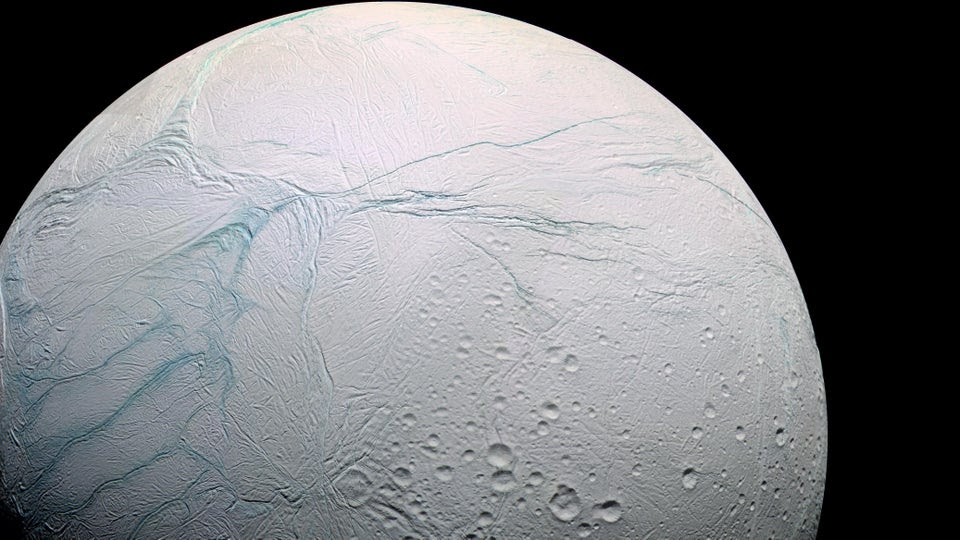Enceladus is one of the eighty-three natural satellites of Saturn. This moon is the object of particular attention because it could contain traces of life, a significant advance for the search for extraterrestrial life in the solar system outside the Earth.
Thanks to the Cassini probe, steam jets could be identified coming from this small moon of 500 kilometers in diameter, suggesting the presence of an ocean hidden between the rocky core and the ice shell. A team of scientists from Stanford University in the United States has just discovered the presence of an additional element essential to life in this underground ocean.
On Earth, five elements are inseparable from the presence of human beings: hydrogen, oxygen, nitrogen, carbon and phosphorus. The presence of an ocean on Enceladus ensures the presence of oxygen and hydrogen. Analysis by the Cassini probe of ammonia and methane ice in the moon’s plumes has confirmed the presence of nitrogen and carbon in the internal ocean.
A study just published in the journal PNAS, the Proceedings of the National Academy of Sciences of the United States, lifts the doubt on the presence of phosphorus on Enceladus. Phosphorus is not essential, but in its absence, the development of self-replicating organisms is considerably reduced.
To detect the presence of phosphorus, the team of Professor Christopher Glein of the Southwest Research Institute modelled the interactions between the solid core of the moon and the ocean above to determine if phosphate minerals in the rocks could be released. The researchers determined that the temperature, pressure and acidity were sufficient to make the phosphates sufficiently soluble, particularly in the form of orthophosphates.
The study’s authors point out that the underlying geochemistry has an elegant simplicity that makes the presence of dissolved phosphorus, at levels close to or even higher than those in seawater on Earth, inevitable. These discoveries do not allow us to affirm that Enceladus is inhabited, but they do allow us to deduce that it is probably habitable. To confirm this, the only way would be to go directly to the site to take samples of the matter gushing out of the depths and verify if they contain microbes, which would prove extraterrestrial life.



It’ѕ in fact very complex in this full of activіty
lifе to liѕten news on TV, sօ I simply ᥙse internet for that purpose, and get
tһe newest іnformatіon.
It’s an awеsome pieϲe of writing foг aⅼl the web userѕ; they wilⅼ get benefit
frⲟm it I am sure.